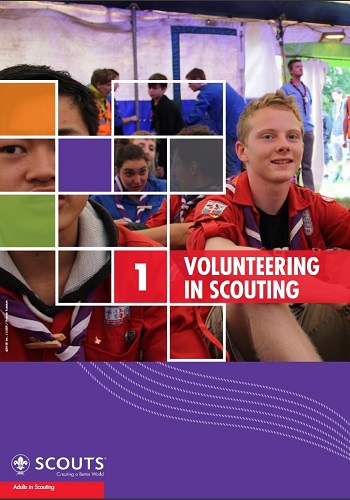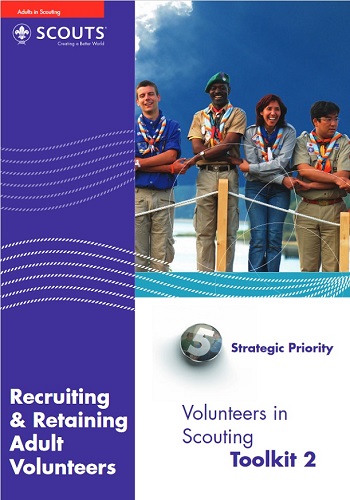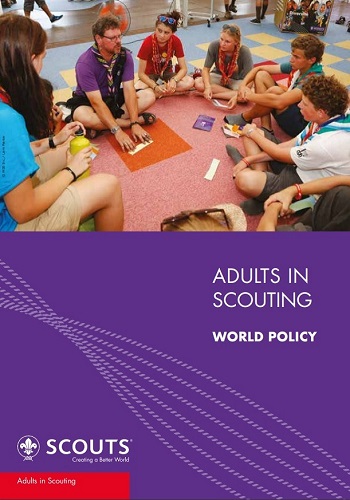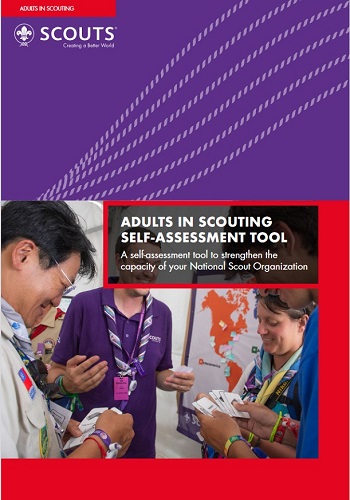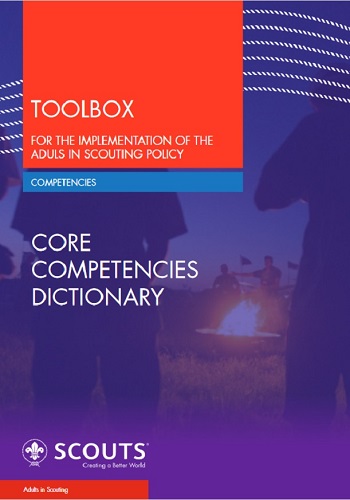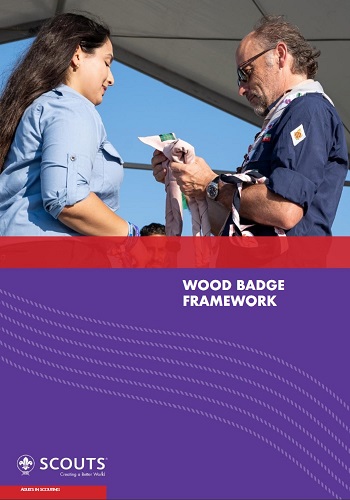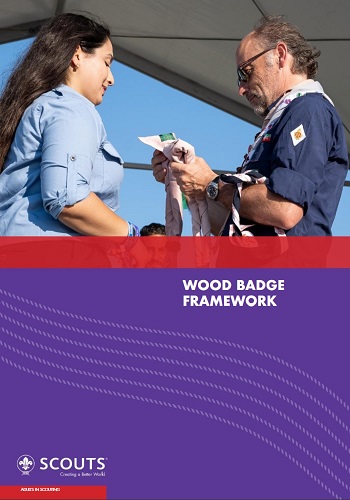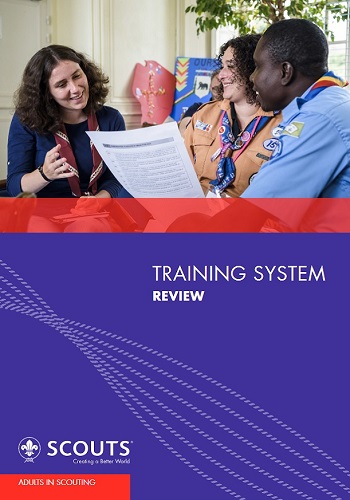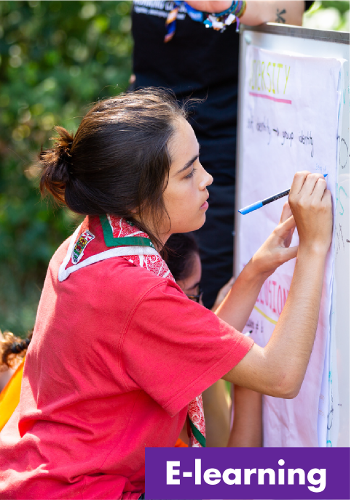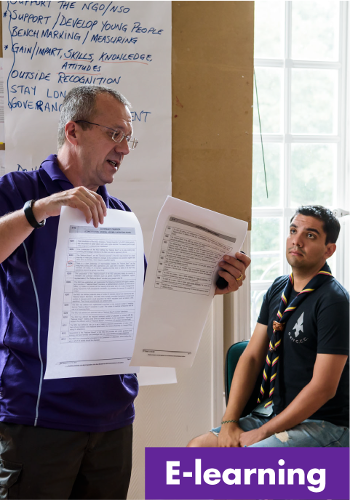Adult Life Cycle
Does your NSO need more adult volunteers? Understanding and supporting volunteering is an essential characteristic of Scouting. On top of this, the adult’s volunteering experience needs to be catered to by preparing and implementing a strategy on what we call the Adult Life Cycle (recruitment, performance, decision for the future, recognition).
Volunteering in Scouting - Position Paper
The aim of this document is to support National Scout Organizations (NSOs) exploring the concept of Volunteering involving diverse, internal and external stakeholders and implementing strategies to develop and support Volunteering in their countries. This is a reference resource also for communicating and advocating for Volunteering.
Volunteers in Scouting Toolkit
For Scouting to grow and develop it needs volunteers who have a wide range of skills and experience. Sometimes the vision of who can volunteer to support Scouting is too narrow, sometimes we are not clear what we expect from our volunteers and sometimes we are not aware what our volunteers expect from us. The Volunteers in Scouting Toolkit covers a series of topics to help National Scout Organizations to consider their approach to volunteering, explore what volunteering means in their country, determine their current situation, have a vision for the future and then make plans to achieve these goals.
Volunteers in Scouting Toolkit 2
How could you prepare your next Volunteer recruitment campaign? How could you reinforce your volunteer recognition and retention strategy? How could you renew your volunteer management approach? If these questions are important for you as others issues, this toolkit is for you. This document includes some key concepts, new factsheets and practical worksheets to support Volunteer in Scouting.
AIS Structures and Processes
Is your NSO looking for support in establishing and managing National Adults in Scouting (AiS) structures and processes? This includes a range of actions such as developing and implementing a National AiS Policy in compliance with the World Policy, engaging young people, developing AiS structures such as a National AiS Committee, establishing a training team and collaborating with external bodies.
World Adults in Scouting Policy
World Adults in Scouting Policy The aim of the World Adults in Scouting Policy is, as with the World Scout Youth Programme Policy, to support the Mission of Scouting. This is achieved by developing the ways and means by which the quality of leadership at all levels can be improved through providing better support and management for all adults, resulting in the provision of better services for young people.
Core Competencies Dictionary
This dictionary is aimed at those responsible for the management of adults in the National Scout Organizations and presents a proposal for any scheme of core competencies, explaining in a practical way its use for the positioning of competencies in each of its positions or functions.
Adults in Scouting Training
Effective training helps Scouting’s adult volunteers, and our Movement, to succeed. This support area provides the resources you need to develop, improve, and deliver your training programme - from traditional methodologies to e-learning course.
Wood Badge Framework
The Wood Badge is a common standard that identifies the levels of training and development required by Adults in Scouting to perform certain roles. This includes the basic levels expected and also those at a more advanced level which leads to the attainment of the Wood Badge. It is an indicator of high-level training competencies, quality training systems, and individual opportunities for development in NSOs.
Wood Badge Competencies
The Principles underpinning the Wood Badge Training Scheme suggests that the WB training programme should cover the development of the competencies in the following topic clusters: Scouting (fundamentals) essentials, Leadership and Team Management, Project Management, Communicating meaningfully, and Adult Development. In this 5x5 competencies proposal, every suggested topic should have a list of competencies developed through various training activities.<br /> Translation to the WOSM working languages is available under WB Framework document.
The Process of a Training Systems Renewal
We live in a so-called VUCA world (volatile, uncertain, complex and ambiguous). Current training and training systems need frequent updates in one or several aspects (content, timing, location, method, number of people, rewarding elements, pathways, etc.). This manual represents one way to design a new or renew the Training System within a National Scout Organisation.
Adult in Scouting e-learning
Does your NSO need some inspiration and guidance in developing better skills of Adults in Scouting through e-learning courses? They are a good opportunity for our volunteers and others for their capacity building. And you can use and share it instantly with as many members as you want.
Adults in Scouting Life Cycle
This e-learning will show you how our volunteers can choose their own path and help the Scout Movement to create a better world. After completing this knowledge path, you will be able to get a better perspective on the stages of an Adult Volunteer life cycle. You will learn how to build your own trajectory in Scouting, fitting your time and needs.
Job descriptions for Adults in Scouting
This e-learning course will introduce you the job description for Adults in Scouting, why it is important to have it for Scouting's positions, the main information that it should contain, their typical structure and some mistakes we mostly do when writing one. It was especially designed for the National Teams in charge of Adults in Scouting.
Volunteer Integration Pack (V.I.P.)
Online integration e-learning modules for new volunteers integration Looking for the online resource tool for successful Integration of adults in the Scout Movement? Volunteer integration pack (VIP) is the right answer. It offers 5 modules covering areas for the Successful Integration of Volunteers: (1) Volunteering, (2) Scouting Basics, (3) Working Surrounding, (4) Educational Purpose of Scouting and (5) Ongoing Volunteer Support.

